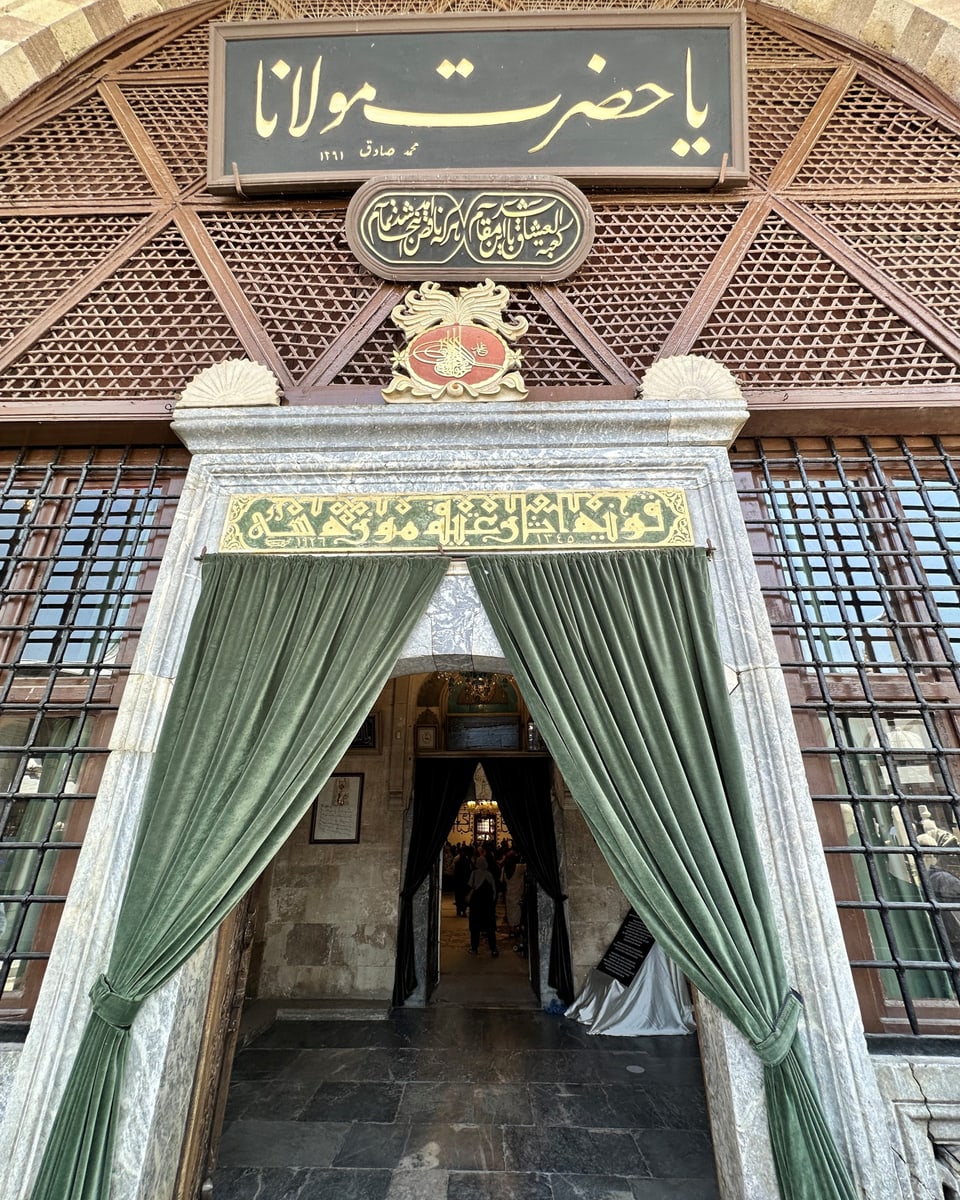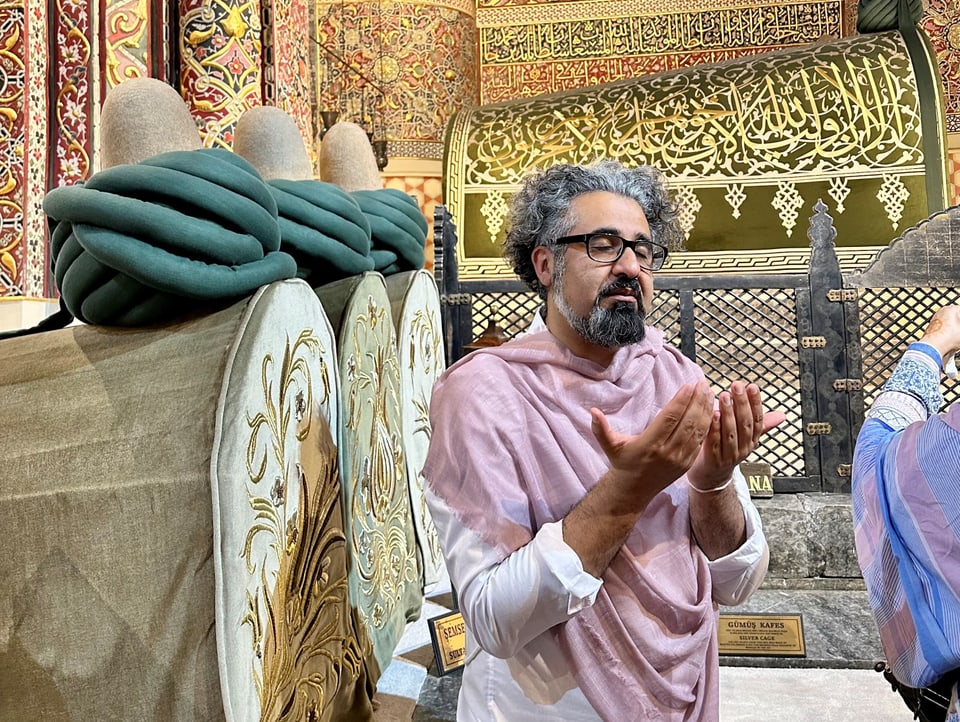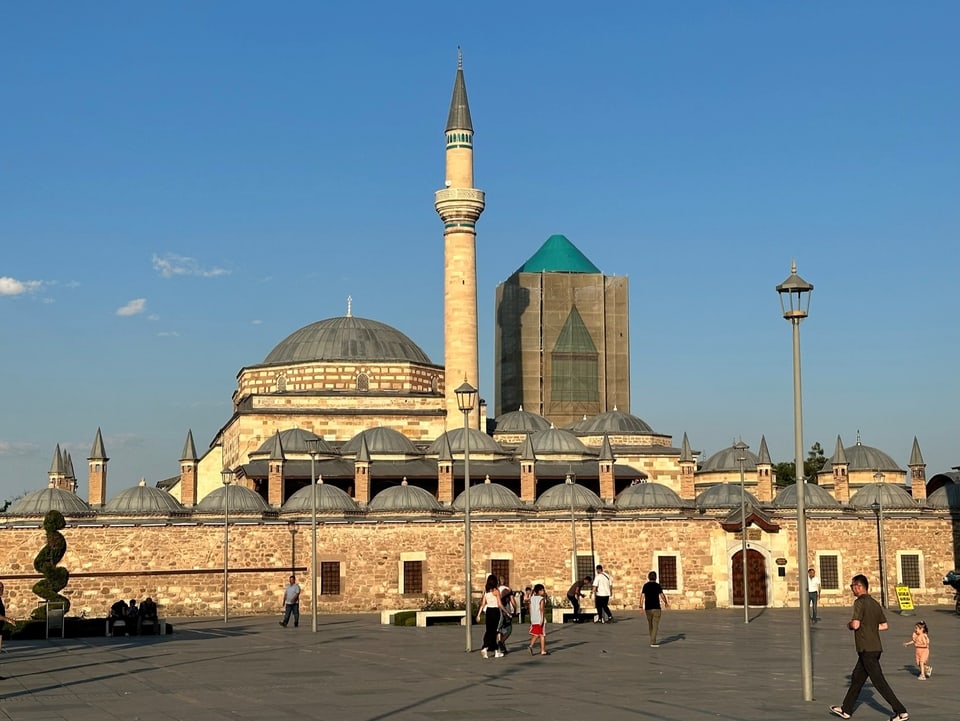Contents
Millions of people make a pilgrimage to Central Anatolia every year to stand at the tomb of the Muslim mystic Jalal ad-Din Rumi. No wonder!
The gate is open. I’m surrounded by people pouring in. But I can’t do it. I traveled to Konya to be right here: at this spiritual pilgrimage site in one of the oldest cities in the world.
Where dervishes rest
The sun shines on my face from all sides. A little blinded, I can feel my heart beating faster. The sound of the bamboo flute sounds softly from the interior. But my heart can’t find the rhythm. I stand frozen in front of the mausoleum of the important Muslim poet and mystic Jalal ad-Din Rumi.
Legend:
Magnet for millions: The mausoleum of Jalal ad-Din Rumi is the landmark of the Turkish city – and today a museum.
Ahmad Milad Karimi
His tomb is in an old rose garden in the heart of Konya. Roses still adorn the place, home of the Whirling Dervishes. But officially since 1925 it has been a museum complex that houses some tombs of the dervishes.
It is in this area that Rumi found refuge as a child with his family, who hail from Balkh, an ancient cultural city in present-day Afghanistan. Perhaps it is this bond, perhaps the fulfillment of a longing to make a pilgrimage to Rumi’s grave that makes me freeze.
Two magical lines
A woman sits right at the entrance and recites verses of poetry from his divan with her eyes closed. As if it were part of the inventory of the place, it is hardly noticed. Only in moments of silence, which occur again and again, can I hear exactly which poem she is reciting from.
The lines take me back to my childhood in Kabul. There Rumi had conquered my heart. It was his poems, his message of love that accompanied me on the run and sparked longing in me. Persian inscriptions can be read above the gate.

Legend:
The entrance gate to the mausoleum. Above is in Persian inscription: “Ya Hazrat-i Maulana” (in English: “O exalted Maulana”).
Ahmad Milad Karimi
An elderly gentleman tries to decipher a word: «Maulana», our master, as he is also called. I repeat after him. Below are two verses by Rumi that touch me deeply: «This place is the Kaaba of lovers. / Whoever comes broken becomes whole here.»
tears of sadness
Here I am fighting back tears and losing the fight. But I realize that I’m not alone. Some stand here and feel their heavy legs. In every face I can see sadness, hope and above all pain. They are not the same, but they carry them here – in front of the gate of Maulana. Suddenly an elderly lady appears and offers me a handful of sweets from her bag. i look at her She speaks Turkish, I don’t understand a word.
Next to me in front of the gate I discover a small grave of the flute players – surrounded by roses. The lady with the sweets stands next to me and nods at me. Then it pulls me in stormily. The interior is adorned with calligraphy, old editions of the Koran, delicate and magnificent chandeliers. At the end of the corridor on the right, Rumi lies next to his son, at his father’s feet.

Legend:
Done: Our author in the tomb of Rumi, whose 750th year of death will be celebrated in 2023.
Ahmad Milad Karimi
Rumi’s tomb is wrapped in a green cloth decorated with verses from the Koran in gold. The pilgrims are kept at a distance with a wooden lattice. Everyone standing there has their hands up and praying. A woman holds out her child. It smells like rose water. Instead of looking further at Rumi’s grave, I close my eyes and now raise my hands.
I do not know exactly whether my longing has been satisfied, for what or for whom I am praying. But mostly for the one who is standing at the gate and can’t get in.
